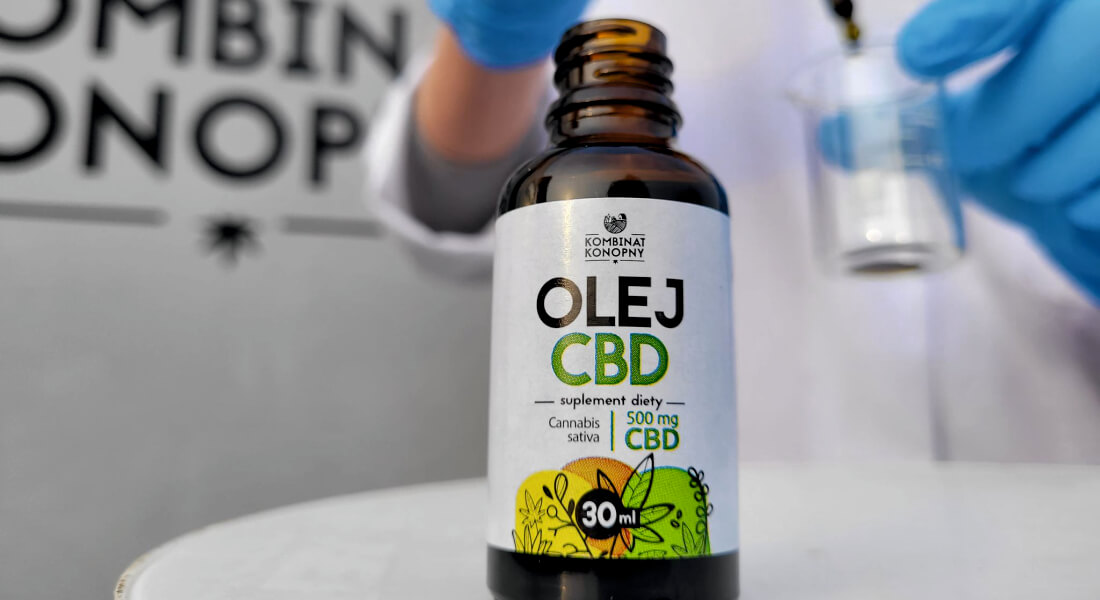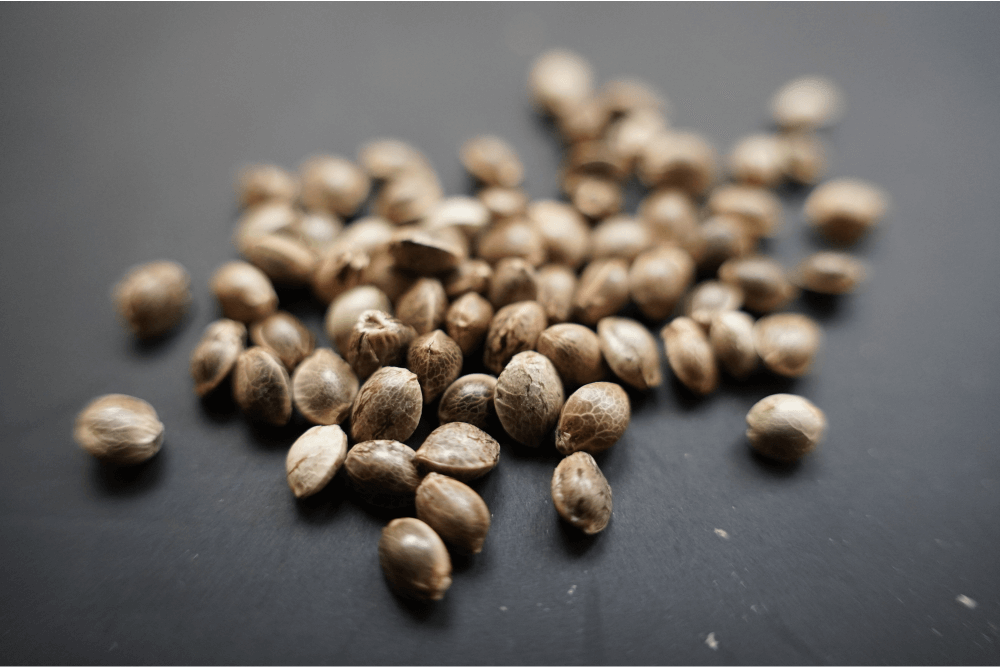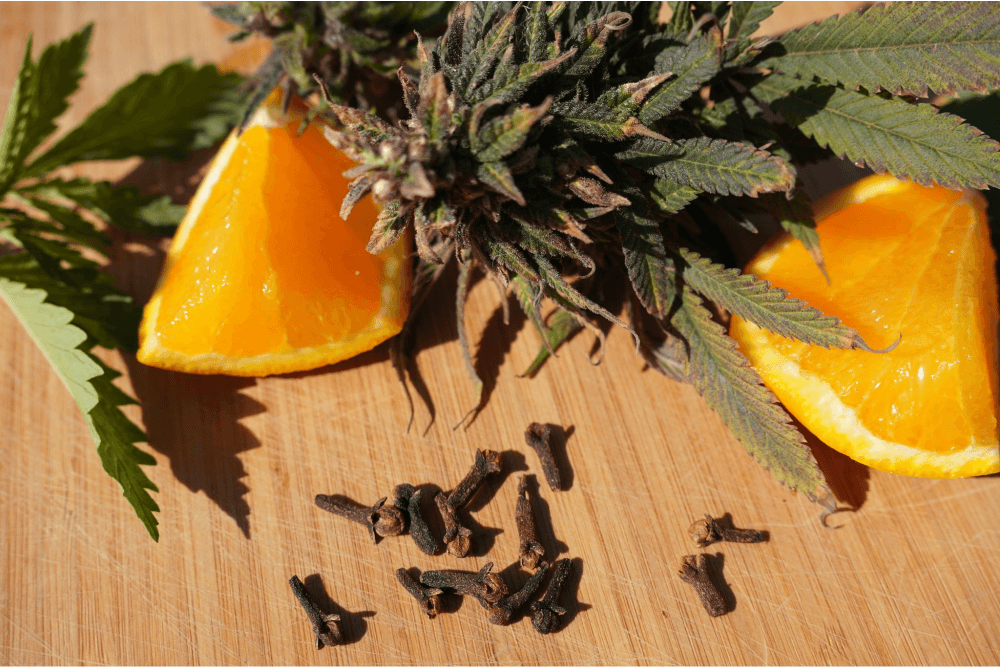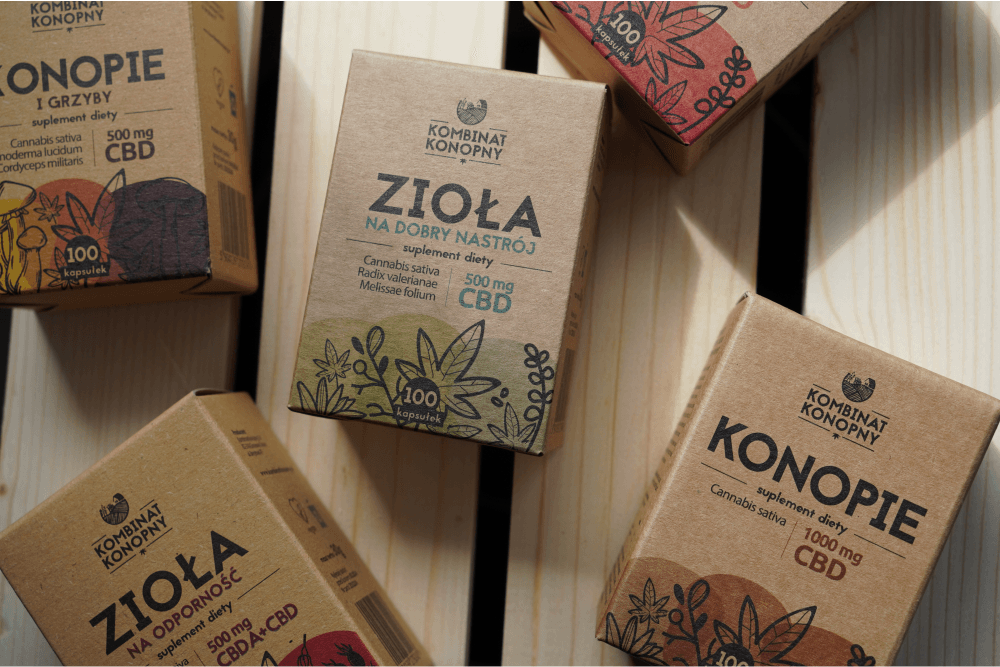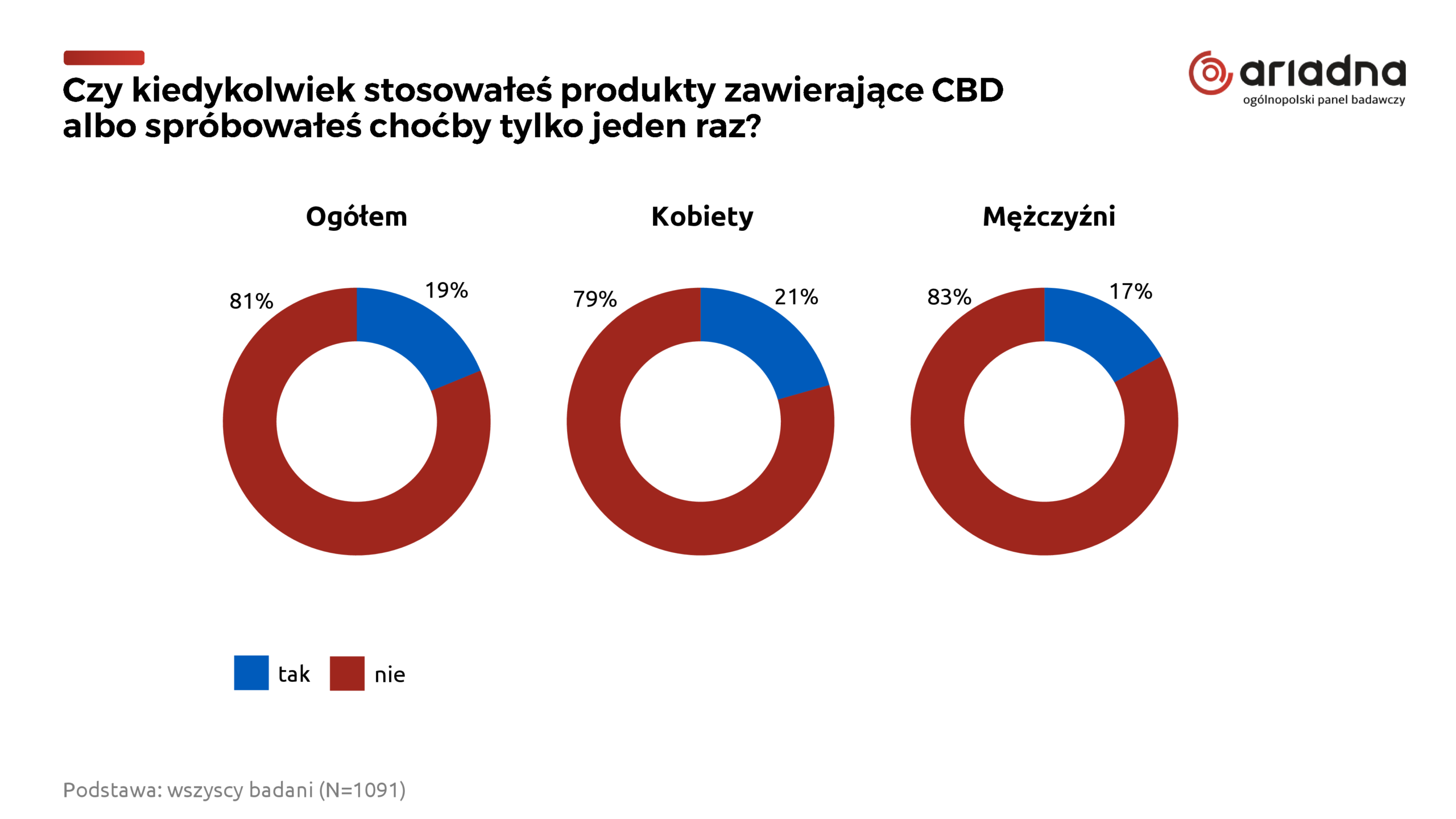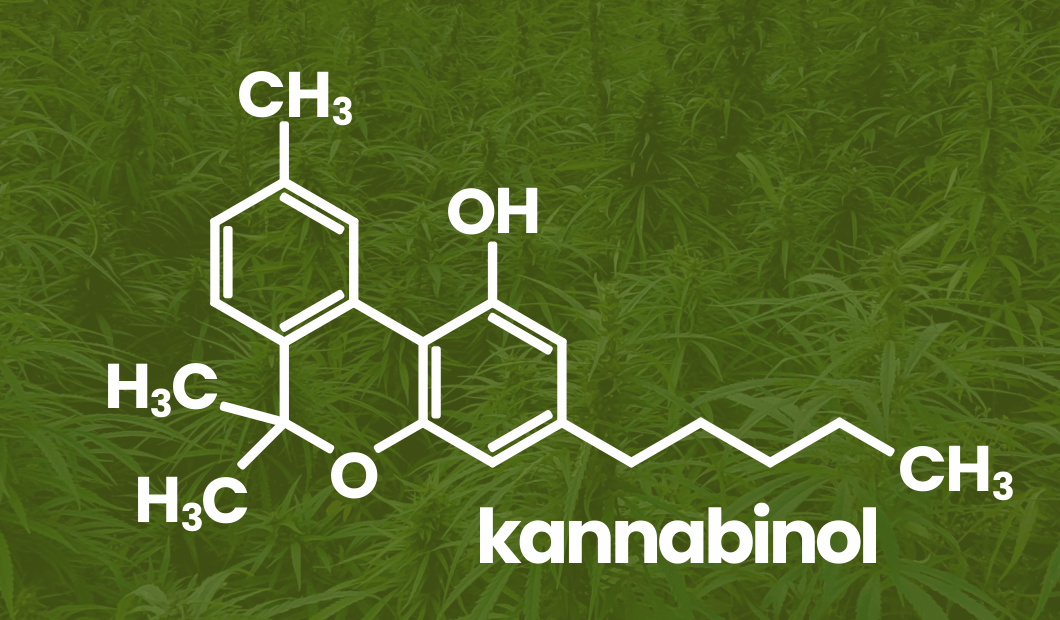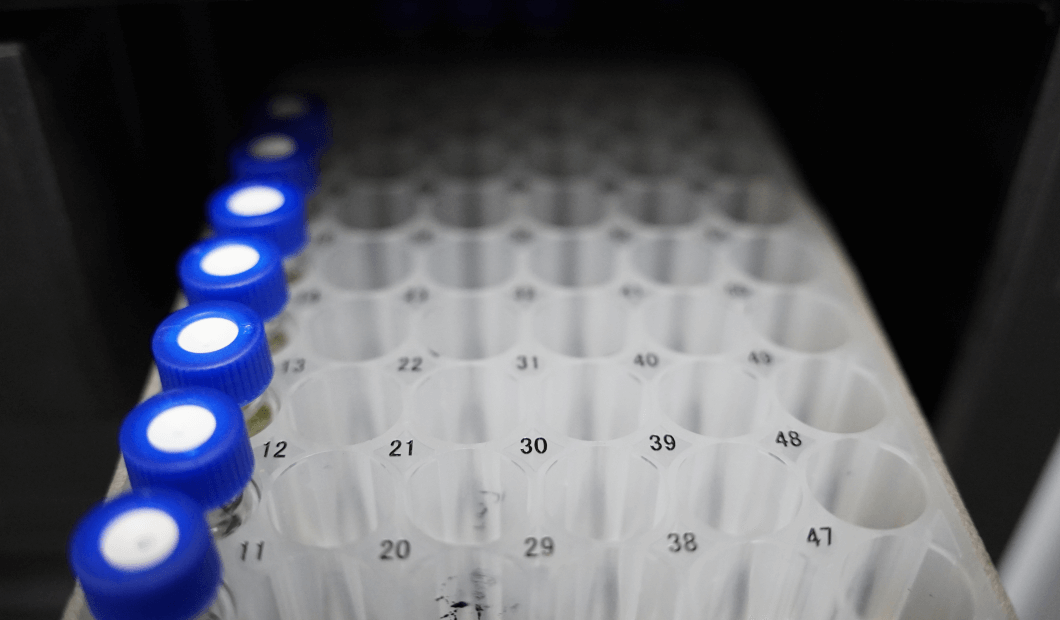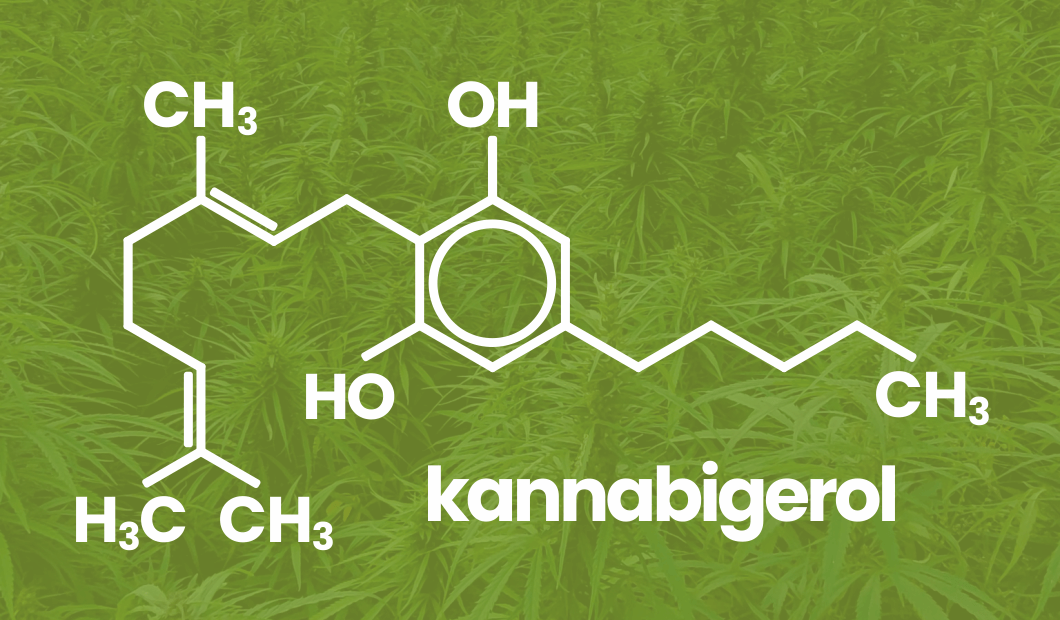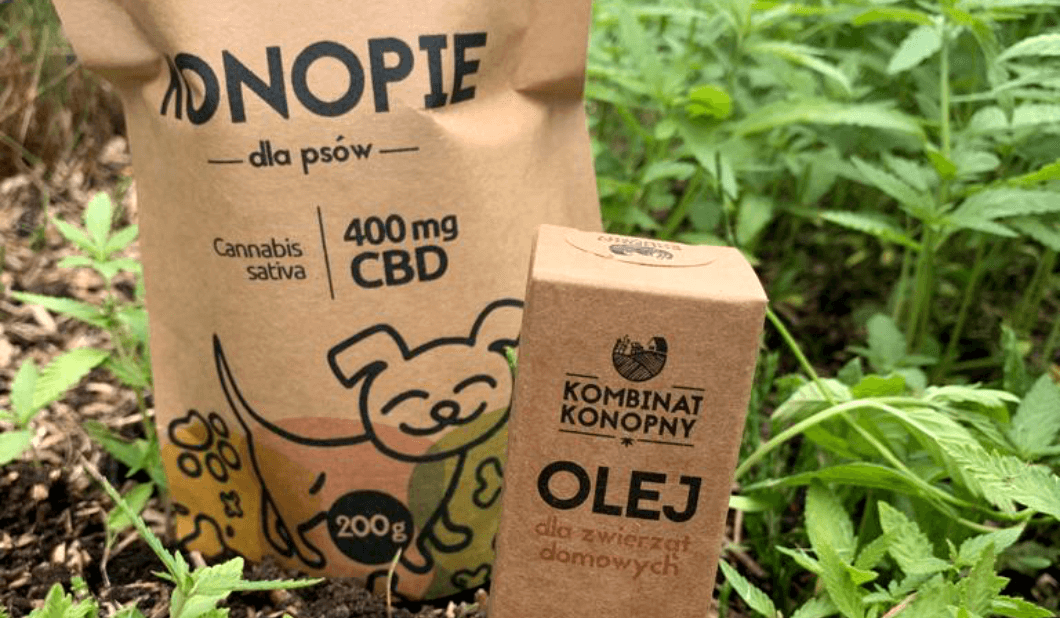The Polish Main Sanitary Inspectorate (GIS) and its “experts” do not like hemp. After many years of groundless accusations against entrepreneurs, a historic judgment was handed down in our case against the GIS.
When we first launched our ‘Zioła na Dobry Nastrój’ (‘Herbs for a Good Mood’), the officials immediately sent us a letter, threatening us with court judgments and forbidding us to sell the product.
What is more, without any investigation, they posted a notice on their website stating that the product could not be marketed. Based on our experience, we filed a complaint against them in court. The first hearing ended up, unfortunately in a typical and scandalous way, with the officials being proved right, to such an extent that the “justification for the verdict” even included extensive fragments of copied (including typos!) GIS formulations.
Not giving up, we appealed the decision to the Supreme Administrative Court, which… agreed with us, ordering the case to be reconsidered by a lower court.
The verdict is probably the first case in Poland (or even in Europe!) where the court did not limit itself to a mindless repetition of the authority’s stance, but instead examined the case on its own merits and came to the only conclusion that could be accepted on a rational basis – that hemp is not a novel food. The decision opens the way for our “counter-attack” – the officials who knowingly committed fraud, concealment and misrepresentation will now be held personally accountable by us.

Below are a few highlights from the reasoning of the judgment – and for those hungry for more details, we encourage you to read the full text of the letter below in this article.
“Neither a public administration body nor a court, ruling again on the same issue, may disregard the NSA’s interpretation of the law”
“this plant (…) has a history of use and does not constitute a novel food”
“The GIS’s assertion in that situation that (…) only the following products are known to have been consumed as food before 15 May 1997: hemp seed, hemp seed oil, hemp seed flour, defatted hemp seed, constituted an unauthorised overinterpretation of the European Commission’s position”
“The GIS’s interpretation of the provisions of the Novel Foods Catalogue in the context of the ‘novelty’ of Cannabis sativa L. herb as food was flawed. The applicant is therefore right that the position of the GIS is wrong”
“A definitive finding of the ‘novelty’ of the herb Cannabis sativa L. as a food by the authority was also impossible because it was clear from the opinion of the European Commission of 18 December 1997 submitted by the applicant, also known to the authority ex officio, that the herb Cannabis sativa L. was excluded from the scope of the Novel Foods Regulation. It states that ‘it has been decided that food containing parts of hemp seed shall not be subject to the Novel Foods Regulation’.
“(…) the undoubted evidence presented by the party in the context of the procedure in question showed a history of consumption of hemp herb both as food and to supplement the normal diet”
“(…) the authority first misinterpreted the provisions of the Catalogue of Novel Foods (…) and then carried out an incomplete and minimal evidential procedure, while ignoring documentary evidence submitted by the applicant, as well as evidence produced by the authority itself and known to it ex officio”
Of course, we do not expect the GIS to come to its senses as a result and accept that it has been wrong for years. We believe, however, that “the truth will prevail”, so we carry on with our work and, in the meantime, we are happy to encourage you to share this good news with the whole hemp fraternity!
PS – there would be no such verdict if it wasn’t for the enormous work of my wife, the author of the substantive part of all our pleadings, Dr. Beata Plutowska, who for a good few years has been collecting evidence not only for the “history of cannabis consumption”, but also building up a sizeable file of abuses and reprehensible acts of official “experts” – and she won’t hesitate to use it!
Thank you Beatka, I love you!
Author: Maciej Kowalski
Below we present the entire judgment, ruling translated by the European Industrial Hemp Association (EIHA).
Ref. no. V SA/Wa 5258/21
JUDGMENT DECISION OF THE COURT IN THE NAME OF THE REPUBLIC OF POLAND
17 February 2022
Provincial Administrative Court in Warsaw composed of the following:
Chairman Judge of the Provincial Administrative Court – Monika Kramek (spokesman)
Judge of the Provincial Administrative Court – Konrad Łukaszewicz
Judge of the Provincial Administrative Court – Michał Sowiński
after considering at a closed session on February 17, 2022 , the case from the complaint of Kombinat Konopnego S.A. (joint – stock company) based in Gronów Górny on the act of the Chief Sanitary Inspector of May 15, 2020, no. BŹ.SD.46.516.2020.WA. concerning the intention to place a food on the mark et for the first time
1. repeals the contested act
2. orders the Chief Sanitary Inspector to pay Kombinat Konopny S.A. with its registered office in Gronów Górny, the amount of PLN 697 (six hundred and ninety – seven zlotys) for reimbursement of court proceedings costs.
Ref. no. V SA/Wa 5258/21
Justification
The subject of the complaint by Kombinat Konopny Spółka z o. o. ( private Limited company ) i n Gronów Górny (hereinafter: “Company”, “Party” or “Complainant”) is the act of the Chief Sanitary Inspector (hereinafter: ” GIS ” or ” A uthority”) of May 15, 2020, no. BŻ. SD.46.516.2020.WA.1 concerning the rights and obligations of the Party under the Act of 25 August 20 06 on food and nutrition safety (Journal of Laws of 2019, item 1252, as amended – hereinafter: ” FNS A “).
The contested act was issued in the following factual and legal status.
GIS, in a letter of May 15, 2020, addressed to the Company in response to the notification of the intention to introduce a dietary supplement to the market for the first time on the territory of the Republic of Poland, entitled: “Zioła Na Dobry Nastrój” (“Herbs for Good Mood”) , indicated that the subject of the proceedings was a product of which the recommended daily dose (i.e. in 4 capsules) contains: 1000 mg of hemp herb (Cannabis sativa), 320 mg of valerian root (Radix valerianae), 320 mg of lemon balm leaf (Melissae folium), 360 mg of olive oil.
The A uthority recalled that in the letter of January 28, 2020, it notified the commencement of the explanatory proceedings referred to in Art. 30 sec. 1 of the FNSA.
Because of doubts as to whether the product is a foodstuff and whether it meets the requirements for a foodstuff, the C omplainant was asked to submit documentation confirming that the hemp herb was used for human nutrition in the Member States of the European Uni on before May 15, 1997.
In a letter of February 26, 2020, the Company presented its position on the matter. Moreover, having regard to the subject matter of the case specified in the summons, i.e., GIS doubts as to the use of the herb Cannabis sativa L. in food, including dietary supplements, before May 15, 1997, the Company applied for evidence to be taken from the examination of the indicated witnesses on the fact of the history of consumption of the herb Cannabis sativa L. including the placing on the market of the herb Cannabis sativa L. in significant quantities before May 15, 1997 , and the taking of evidence from the documents attached to the letter, i.e. scans from the website of the New Food Catalog regarding the Cannabis sativa L. plant, valid on February 18, 2020, February 11, 2018, March 30, 2017, and documents in which the European Commission refers to the opinion of December 18 , 1997 , on this plant.
In the opinion of the Party, in the present case, the condition justifying the initiation of the explanatory procedure referred to in Art. 30 sec. 1 of the FNS A was not met . It is obvious that the herb of Cannabis sativa L . was used in nutrition before May 15, 1997, which is confirmed by numerous sources indicated in the letter. This is also confirmed by the European Commission because , in the Catalog of New Food that it publishes, it was not indicated that hemp herb was a new food. There are also no ground s to request the Party to provide documentation confirming the history of the use of Cannabis sativa L. The provision cited by GIS, i . e ., Art. 121 paragraph. 1 of the FNS A states that a food business operator is required to provide documentation confirming the history of a food’s use only in case of doubt as to whether the food placed on the market has so far been used in human nutrition. The C ompany presented arguments that the C atalog of New Food does not contain any indications that the herb Cannabis sativa L. used in the product is a novel food, and therefore the food products containing or consisting of the herb Cannabis sativa L. are not falling within the scope of Regulation (EU) 2015/2283 of the European Parliament and of the Council of 25 November 2015 on novel foods and it is not necessary to conduct an authorization procedure for placing a novel food on the market in the European Union.
The C ompany indicated evidence of t he use of the hemp herb Cannabis sativa L. as herbal raw material in food, evidence of the use of the hemp herb Cannabis sativa L. in food described documents proving that Cannabis sativa L . is not a novel food within the meaning of Regulation No. 2015 / 2283. Th e Company also alleged that it did not act against other entrepreneurs marketing similar products.
After analyzing the evidence and arguments provided by the P arty, the A uthority conc luded that they are not sufficient to confirm the history of significant consumption of hemp in food for human consumption in the EU Member States. In the opinion of the A uthority, the evidence presented in most cases shows that the herb of hemp was used for medicinal purposes and not as food. Following the provisions of the food law, foodstuffs, including dietary supplements, cannot have properties that are characteristic of medicinal products within the meaning of the pharmaceutical law.
The definition of food is set out in Art. 2 of Regulation (EC) No 178/2002 of the European Parliament and of the Council of 28 January 2002 laying down general principles and requirements of food law (…) (Journal of Laws EC L 31 of 1.2.2002, p. 1, with d.). This provision states that the foodstuff does not include, inter alia, medicinal products as defined in Council Directives 65/65 / EEC (1) and 92/73/EEC; drugs or psychotropic substanc es within the meaning of the Convention on Narcotic Drugs, 1961 and the Convention on Psychotropic Substances, 1971.
Referring to the decree of the Ministry of Agriculture and Rural Development of the Slovak Republic No. 309/2015 cited by the Party, the li st of leaves and seeds allowed in the production of tea includes the leaves and seeds of Cannabis Sativa L. – the Authority indicated it as a proof of usability of leaves and seeds in tea production (and not the whole herb – flowers, leaves, stems). On the other hand, the consumption of hemp leaves in teas does not constitute a “significant consumption” of the hemp herb in food, including dietary supplements, before May 15, 1997.
In the opinion of th e A uthority, the Party misinterpreted the provisions of the New Food Catalog kept by the European Commission regarding hemp (Cannabis sativa L.). The Catalog indicates that in the case of the Cannabis sativa L. plant, a history of consumption as food befor e 15 May 1997 of only certain hemp – derived products is known: seeds, hemp seed oil, hemp seed flour, defatted hemp seed. The above provisions of the Catalog are reflected in the opinion of the Committee for Food Safety and Nutrition of the Sanitary and Epi demiological Council of the GIS of 27 May 2019 on the safety of using hemp in food due to the presence of THC and CBD. There are no data on the safety of the other (except seeds) plant parts derived from hemp. Hence, these ingredients are new foods. Produc ts derived from other parts of the hemp plant are considered novel foods.
The A uthority further indicated that in recent years the legal status of Cannabis sativa L. and cannabinoids has been repeatedly verified and discussed at meetings of the European Commission as part of the working group on novel foods, as well as the working gr oup on flavors.
The current entries in the New Food Catalog regarding the status of Cannabis sativa L. have been developed by representatives of individual Member States.
The meetings of the working group on novel foods at the European Commission level were also attended by representatives of the European Industrial Hemp Association (E I HA), along with their associates, as well as representatives of the British Cannabis Trades Association UK. Accordingly, the arguments put forward by the P arty are known.
Before placing on the market in the territory of the European Union (including Poland) food products containing hemp herb, it is necessary to carry out a procedure to authorize the introduction of a novel food to the European Union market, as define d by the provisions of Regulation 2015/2283 of 25 November 2015 on novel foods, amending Regulation (EU) No. 1169/2011 of the European Parliament and the Council and repealing Regulation (EC) No. 258/97 of the European Parliament and the Council and Commis sion Regulation (EC) No. 1852/2001 (Journal UE L 327 of 11.122015, p. 1).
In the opinion of the A uthority, the suggestions of the Party that the Committee for Food Safety and Nutrition of the Sanitary and Epidemiological Council at the Chief Sanitary Inspe ctor overinterpret the provisions of the New Food Catalog, or that it has no knowledge of the plant ingredient – Cannabis sativa, are unfounded.
According to the Act on the State Sanitary Inspection of March 14, 1985 (Journal of Laws of 2019, item 59, as amended), the advisory and opinion – making body of the Chief Sanitary Inspector in matters covered by the scope of activities of the State Sanitary Inspecti on is the Sanitary – Epidemiological Council. Within the Council, there is , inter alia, the Food Safety and Nutrition Commission – as a consultative and advisory body of the Chief Sanitary Inspector. The members of the Council are scientists with outstanding practical training in the sanitary – e pidemiolo gic fie ld . Among them are national experts participating in European Commission working groups in the field of food law and the work of the European Food Safety Authority (EFSA).
In the opinion of the A uthority , i n addition to the indicated legal status of the product “Zioła Na Dobry Nastrój” introduced to the market, which contains the herb of the Cannabis sativa L. plant, the issue of the safety of the use of hemp and its products as food was important . The Authority concluded that placing dried hemp on the market as food may pose a potential risk to the consumer due to its THC content, as all parts of the hemp plant may contain phytocannabinoids. The highest concentration of phytocannabinoids is found in inflorescences and leaves (“Cannabis sativa: the plant of the thousand and one molecules”. Andre C.M. et al. Front Plant Sci. 2016; 7:19). One of the phytocannabinoids is A9 – THC, which has a strong psychoactive effect on the human body.
The substance af fects the central nervous system, causing, among others increased heart rate (tachycardia), and mood changes. Chronic exposure to THC affects the central nervous system, causing motor impairment, reduced social behavior, impairment of learning processes, weight loss, impaired spermatogenesis, histopathological changes , and harmful effects on the immune system.
The A uthority argued that the European Food Safety Authority (EFSA) in its report of January 7, 2020 “ Acute human exposure assessment to tetrahydrocannabinol ” (EFSA Journal 2020; 18 (1): 5953) assessed, inter alia, that consumption of hemp tea at high intake le vel is associated with exposure to 2080% of the established reference dose. In 2015, EFSA assessed the human health risks associated with the presence of tetrahydrocannabinol (THC) in milk and other animal products. An acute human reference dose of 1 pg A9 – THC / kg BW was determined. Taking into account this toxicometric parameter, in the case of adult consumers, a daily intake of A9 – THC not exceeding 70 pg does not pose a significant health risk.
The A uthority further indicated that the Food Safety Commission, in its opinion of 27 May 2019, noted, inter alia, that if THC is found in hemp products, it is necessary to perform a risk assessment based on the acute dose adopted by EFSA reference (ARfD), 1 pg A9 – THC / kg BW (point 3 of the opinion). The Co mmission recommended that the THC content of hemp products should be tested by the trader as part of internal procedures to assess consumer exposure.
In the case at hand, there are no results of the analysis of the product in question for the presence and content of A9 – THC.
The Authority’s objection was also raised by the content of the product ” Zioła Na Dobry Nastrój “, valerian root , and lemon balm leaf in a therapeutic dose. According to the EMA monograph of May 14, 2013 , on Melissa officinalis folium , the therapeutic dose is 0.19 – 0.55 g of powdered plant substance applied 2 – 3 times a day. However, according to the EMA monograph of 2 February 2016 on Valeriana officinalis radix , the therapeutic dose is 0.3 – 3 g of fragmented plant substance used up to 3 times a day. The A uthority also indicated the possibility of a synergistic effect of hemp herb, valerian root , and lemon balm, whi ch may lead to the enhancement of the product’s properties.
In the complaint against the GIS act of 15 May 2020, the C omplainant, demanding that the contested act be repealed and the explanatory proceedings discontinued, alleged:
1. Art. 7, 77 , and 80 of the Code of Civil Procedure, by conducting incomplete evidence proceedings and arbitrary evaluation of the collected evidence, appointing an inadequate opinion of an advisory body – resulting in the determination that the powder of the Cannabis sativa L. herb is a novel food and it is necessary to conduct European registration procedures;
2. Art. 7a of the Code of Civil Procedure, by resolving any doubts to the detriment of the Party, despite the position of the European Commission of 18 December 19 97 and data resulting from the online Catalog of New EU Food – incorrect recognition that Cannabis sativa L. is a novel food;
3. Art. 8 of the Code of Civil Procedure, by conducting the proceedings in a manner that does not raise trust in public authorities and violates the principle of equal treatment, which is manifested in the initiation of an investigation into the status of Cannabis sativa L. as a novel food without analyzing the Party’s arguments, concerning over a hundred products currently offered on the market containing the herb Cannabis sativa L,;
2. breach of substantive law , i.e., Art. 6 sec. 2 of the EU Novel Food Regulation, through its incorrect application to defective facts and, consequently, erroneous recognition that a component of the Cannabis sativa L. product requires authorization to be placed on the EU market and consti tutes a novel food that requires a registration procedure.
In the justification of the complaint, it was indicated that GIS initiated proceedings pursuant to Art. 30 sec. 1 of the FNS A , after the Party has made the notification referred to in Art. 29 sec. 1 of the act. The first letter from GIS was issued on December 30, 2019, although it did not formally initiate proceedings at that time. The A uthority expressed the opinion that the pro duct entitled ” Zioła Na Dobry Nastrój “, due to the content of powdered hemp herb Cannabis sativa L., is a novel food that requires a procedure for the authorization to introduce a novel food to the market.
In the register of products which are introduced t o the marke t covered by the notification published on the GIS website, the following annotation appeared next to the Party’s product: “ the product cannot be marketed as a foodstuff ”.
On January 15, 2020, the State County Sanitary Inspector in Elbląg carried out a sanitary inspection in the P arty’s plant, and then, on January 27, 2020, initiated proceedings on withdrawal of the product under the name “Zioła Na Dobry Nastrój” from trade. On February 5, 2020, GIS modified in its r egister the status of t he Party’s product to the following entry: “contains a prohibited component”. The above steps were taken without the formal initiation of an investigation.
Subsequently, GIS initiated an investigation, pointing to the lack of evidence of a history of consu mption of Cannabis sativa L. before May 15, 1997. The A uthority asked the P arty to provide documentation proving that hemp was used for human nutrition in the EU Member States before that date.
The C ompany made extensive explanations and offered to hear seven witnesses – experts on the fact that Cannabis sativa L. was largely consumed before May 15, 1997. The Authority did not accept these explanations.
In the opinion of the Party , the A uthority misinterprets the content of the online Catalog of Novel Food published by the European Commission for i t found that the description under the heading Cannabis sativa L. showed that its aerial parts constitute novel food.
Meanwhile, the plant Canna b is sativa L. has been marked with a green “y” graphic, which indicates the status of the food being authorized. The hemp plant (Cannabis sativa L.) is – leaves, stem, flowers , and seeds. There are no grounds to distinguish the permissibility of trading in dri ed leaves, stems , or flowers since the entire plant in the Catalog has been marked with a green icon. Therefore, it is admitted to trading on the EU market without the need for an authorization procedure. The EU Novel Food Catalog only marked with the red “X” symbol:
– Cannabis sativa L. plant extracts containing cannabinoids,
• products derived from these extracts, i.e., any products to which these extracts have been added (such as, e.g., seed oil),
– extracts from plants other than Cannabis sativa L. containing cannabinoids,
• synthetically derived cannabinoids.
T he safety of nutrition with the use of hemp herb is affected by t he content of biologically active substances – cannabinoids: THC and CBD, the use of which is controversial. However, CBD is completely safe according to the WHO. Some plant products obtained through physicochemical activities have increased concentrations of these compounds. Therefore, only they require separate registration procedures, as indicated by the description in the EU Nove l Food catalog, under the entry “Cannabinoids”. Only these products have been marked by the EU catalog as “novel foods” and th ere is no reason to extend this to products whose basic raw material is hemp herb. Currently, groups of products have been listed as novel food in which, as a result of further processing of the plant, the concentrations of cannabinoids are intentionally i ncreased.
According to the Complainant, the A uthority had at its disposal the opinion of the European Commission of 18 December 1997, which indicated the exclusion of the herb Cannabis sativa L. from the application of the EU regulation on the new food. Th e Party also provided a list of publications that mention the consumption of hemp for hundreds or even thousands of years and offered witness evidence that would confirm this condition.
The A uthority referred to the alleged “danger” of the product due to the THC content, and even valerian and lemon balm. The product contains little THC and one would have to consume even several dozen kilograms every day to exceed the level stemming from the EF SA opinion.
In response to the Company’s complaint, GIS filed for its dismissal, stating that on November 18, 2019, the Party submitted to the Electronic Notification System, pursuant to Art. 29 sec. 1 u.b.2.2 a notification of the intention to introduce o n the market for the first time in the territory of the Republic of Poland the product called “Zioła N a D obry N astrój”, which the Party qualified as a dietary supplement.
In the notification referred to in Art. 29 sec. 1 of the Act, it is possible to choos e the type of notification: about the introduction of a food or about the intention to introduce a food. A two – fold solution is because not every entrepreneur places the product on the market at the time of sending the notification. Some entrepreneurs, bef ore placing a given product on the market, first notify about their intention to introduce it on the territory of the Republic of Poland. In this case, the P arty decided to notify about the intention to introduce the product ” Zioła N a D obry N astrój ” on the territory of the Republic of Poland for the first time, which may indicate that the entrepreneur planned to introduce it to the market only after obtaining the position of GIS. It was further indicated that from July 17, 2019, the opinion of the Commit tee on Food Safety and Nutrition of the Sanitary and Epidemiological Council at the Chief Sanitary Inspector on the safety of using hemp in food due to the presence of THC and CBD was published on the website of the Chief Sanitary Inspectorate.
In a letter of December 30, 2019, GIS informed the Company that due to the presence of hemp (Cannabis sativa L . ) in the product, which, according to the information provided in the New Food Catalog, is considered a novel food, the product ” Zioła N a D obry N astrój ” ca nnot be marketed in the territory of the Republic of Poland as a foodstuff. Before placing a product on the European Union market as food, it is necessary to conduct a procedure for the authorization of a novel food on the E U market, following the provisions of EU Regulation No. 2015/2283 on novel foods. Art. 3 sec. 2a (iv) of EU Regulation 2015/2283 concerning novel foods, which include hemp was invoked.
The P arty asked GIS to remove from the product register in the “result of the procedure ” t he erroneous statement “cannot be placed on the market as a foodstuff” as no investigation has been carried out or initiated.
In response, GIS notified the P arty about the commencement of explanatory proceedings, pursuant to Art. 30 sec. 1 of the Food and Nutrition Safety Act. According to GIS, no data are confirming the use of hemp in food, including in dietary supplements, for human nutrition in the Member S tates of the European Union before May 15, 1997.
The GIS register contains the entry “proceedings in progress” – following the Regulation of the Minister of Health of December 21, 2019 , amending the regulation on the model of the notification form for prod ucts placed on the market for the first time in the territory of the Republic of Poland, the register of products covered by the notification and the list of national scientific units competent to issue opinions (Journal of Laws of 2019, item 2499).
In the opinion of GIS, the P arty’s argumentation was not sufficient to confirm the history of significant consumption of hemp herb in food for human nutrition in the EU Member States before May 15, 1997. In the opinion of the A uthority, it is the Party that misinterprets the entries in the New Food Catalog, appearing from January 2019, concerning the hemp (Cannabis sativa L.) plant. The current position of the European Commission in the Novel Food Catalog regarding the Cannabis sativa L. plant appeared at the beginning of 2019, after several years of arrangements were made within the EC working group on novel foods, as well as the EC working group on flavors. The Novel Food Catalog shows that in the case of the Cannabis sativa L. plant, a history of cons umption before May 15, 1997 , of certain hemp products as food is known, i.e., hemp seed, hemp seed oil, hemp seed flour, defatted hemp seeds. The remaining parts of the Cannabis sativa L plant (in the form of an herb, i.e., inflorescences, leaves , and stem s) are not among the products listed in the New Food Catalog. These ingredients are considered novel foods due to the lack of data on their safe use in the EU Member States.
The A uthority indicated that the use of hemp in food is prohibited in some Member States. In Belgium, the plant Cannabis sativa L. was included in the list under number 1 “Dangerous plants that cannot be used as food or food ingredient”. In France, Cannabis sat iva L was not listed amongst the plant ingredients allowed for use in the food group. According to Italian food law, only seeds and seed oil from Cannabis sativa L. can be used in dietary supplements. In Bulgaria, only seeds from Cannabis sativa L can be u sed in dietary supplements. In Germany, only seeds are listed as part of the Cannabis sativa plant. L. which can be used for food (the history of consumption is known). The decree of the Ministry of Agriculture and Rural Development of the Slovak Republic No. 30912015 cited by the P arty indicates the possibility of using leaves and seeds derived from the Cannabis sativa L. plant for the production of tea This use may be evidence of a history of consumption of tea containing Cannabis sativa L. leaves, and no t the whole herb (leaves, stems and inflorescences). Different approaches in individual European Union countries indicate that the hemp herb Cannabis sativa L. is not permitted for use as food in the individual Member States. The position of the European C ommission in the Novel Food Catalog concerning parts of hemp (Cannabis sativa L.) other than seeds is unambiguous. Before placing hemp herb on the market in the territory of the European Union as food, it is necessary to conduct a procedure for the authori zation of the introduction of a novel food to the EU market under EU Regulation No. 2105/2283 on novel foods. This assessment is confirmed by several applications submitted to the European Commission for Cannabis sativa L. cannabis products as a novel food , submitted by Complainant s via the electronic application system, the so – called E – submission system. At present, around 60 applications have been submitted by various entrepreneurs for Cannabis sativa L. cannabis products, including cannabidiol (CBD). The position of the Committee on Food Safety and Nutrition and the Sanitary and Epidemiological Council of GIS of 27 May 2019 on the safety of using hemp in food due to the presence of THC and CBD is correct.
Regarding the allegation of “alleged danger of the product due to the THC content”, GIS stressed that it did not find the product dangerous, but pointed out that the documentation submitted by the Party did not contain the results of testing the product fo r A9 – THC content – a psychoactive substance. The role of GIS is not to provide evidence of the safety or danger of foodstuffs. The European Food Safety Authority (EFSA) is the EU food safety risk assessment body.
The A uthority submitted that the informatio n on the C omplainant’s website https: / /wp.kombinatkonopny.pliproduktiziolanadobrynastroj/ showed that the product contained Cannabis sativa subjected to a special technological procedure – decarboxylation. Decarboxylation transforms cannabinoids into their ac tive forms so that their full potential can be used . On the website https://wp.kombinatkonopny.pl/dekarboxylacja – konopi/ there is a description of the decarboxylation of dried hemp. The dried hemp after decarboxylation can contain 8.77% THC.
GIS renewed its reservations as to the content of valerian root and lemon balm leaves in the product composition (respectively, 320 mg in the recommended daily dose – i.e., in 4 capsules). Such amounts of ingredients in the product may indicate therapeutic properties. Meanwhile, a dietary supplement may not exhibit the properties of a medicinal product, which results from the definition of a dietary supplement contained in Art. 3 sec. 3 point 39 of the FNSA.
Pursuant to Art. 2 d, g of Regulation (EC) No 178/2002 of the European Parliament and of the Council of 28 January 2002 laying down the general principles and requirements of food law, establishing the European Food Safety Authority and laying down procedu res in the field of food safety (Journal of Laws WE L 31 of 1 February 2002, as amended) “foodstuff” does not include medicinal products, narcotics or psychotropic substances as defined by the Convention on Narcotic Drugs, 1961, and the Convention on Psych otropic Substances, 1971.
Referring to the allegation of non – equal treatment of all entrepreneurs placing products containing Cannabis sativa L. on the market, GIS indicated that due to a large number of notifications of “intention to put on the market”, t he products that have already been placed on the market or have been identified on the market under official food control are analyzed first.
Regarding the alleged violation of Art. 7, art. 7a, art. 8, art. 77 and art. 80 of the Code of Civil Procedure, GIS indicated that all information obtained from the Party had been assessed and verified.
Regarding the allegation of infringement of substantive law – Art. 6 sec. 2 of the EU Regulation 2015/2283 on novel foods, GIS explained that the product ” Zioła N a D obry N astrój “, concerning the content of the herb Cannabis sativa L., is a novel food.
In the letter of September 15, 2020, constituting a reply to the A uthority’s response to the c omplaint, the Company did not agree with the assessment as to the full and detailed reference to the statements and evidence offered in the course of the case. The A uthority de facto did not assess, and partially did not carry out the presented evidence, but only argued with the statements, defending its narrowly arg ued, different concept.
The C ompany disagreed with the GIS view that the EU Novel Food Catalog can only be interpreted dichotomously. In the Company’s opinion, the Catalog by definition does not list all food products and their ingredients that can be used in food production. The fact that a particular food or ingredient is not explicitly mentioned in it does not necessarily mean that it is automatically a novel food. The Novel Food Catalog lists only those products and ingredients for which the European Co mmission has received a request for an opinion as to whether a given product or ingredient should undergo the authorization procedure. This is clearly stated in the legend explaining the status of individual ingredients.
The C ompany once again emphasized that, in the opinion of the European Commission, only products and ingredients listed directly in the Catalog and additionally marked with the X symbol may require authorization before being placed on the market as a novel food.
According to the Party, GIS is trying to manipulate the judgment of the Court by selectively arguing and by making false claims that the use of hemp is prohibited in some Member States. The Party added that GIS had originally only argued that hemp herb w as a novel food, and when the Party presented evidence that this was not the case, the Authority also began to argue that there were laws prohibiting the use of the hemp herb Cannabis sativa L. because of the health hazards. GIS provided data on the harmfu lness of THC completely inadequate to the situation and presented wrong examples from “carefully” selected documents from the several EU Member States. There is no doubt, however, that GIS has not presented a single provision of generally applicable law that would prohibit the use of hemp for food production in Poland.
In the opinion of the Company, any attempts by GIS to impede or stop the free sale and movement of food, including dietary supplements in the EU, are also contrary to the pri nciple of the free movement of goods in the EU, as defined by the treaties, but also specified by the jurisprudence of the Court of Justice, which also extends these freedoms to include the principle of mutual recognition of standards.
In the procedural le tter of January 21, 2021, the A uthority upheld the position contained in the defense, stating that in its reply, the Party mostly repeats the allegations already raised in the complaint of June 29, 2020 , against the act of May 15, 2020. In the Authority’s opinion, the factual state of affairs was fully and correctly explained in the challenged letter. The Party has been informed about the steps taken. In the course of the proceedings conducted by GIS, all information regarding the correspondence exchanged b etween the Party and GIS was assessed. Moreover, GIS showed that there was no error in the finding that the Party’s product “Zioła N a D obry N astrój” in terms of the herb ingredient Cannabis sativa L. is a novel food and that the EU food law was violated in the above – mentioned range.
By the judgment of January 29, 2021, file ref. Act. VII SA / Wa 1439/20 The Provincial Administrative Court in Warsaw dismissed the complaint, sharing the A uthority’s assessment that products derived from parts of the hemp plant other than seeds are considered novel food. The court of first instance indicated that pursuant to Art. 3 sec. 2 lit. and (EU) No. 2015/2283 of the European Parliament and of the Council of 25 November 2015 on novel foods, “novel foods” are foo ds that were not used for human consumption to a significant degree in the Union before 15 May 1997 which falls into at least one of the indicated categories. This could, for example, be “(i) food consisting of, extracted or produced from plants or parts t hereof, except food which has a history of safe food use in the Union and consisting of, extracted or produced from plants, or varieties obtained from the same species”. Thus, what should be treated as novel foods results from Regulation (EU) 2015/2283 of the European Parliament and of the Council of 25 November 2015 on novel foods, the provisions of which apply from January 1, 2018, and the Commission implementing regulation (EU) 2017/2470 of 20 December 2017 establishing the EU list of novel foods followi ng Regulation (EU) 2015/2283 of the European Parliament and the Council on novel foods (Official Journal EU L 351 of 30.12.2017, p. 72). In addition, the source of information on the status of specific ingredients is the Novel Food Catalog maintained by th e European Commission. This catalog is a set of names of food ingredients together with information available at the moment about the status of a given ingredient, which is not a closed set. The Novel Food Catalog (due to its nature) provides indicative in formation on whether or not a specific ingredient of animal or plant origin and other substances require the procedure specified in Regulation 2015/2283 to be carried out.
The court emphasized that the analysis of the website https://ec.europa.eu/food/safe ty/novelfood shows that in the Catalog of Novel Foods concerning hemp (Cannabis sativa L.) there was a green “V” sign and the following description – in the European Union the cultivation of Cannabis sativa L. varieties is allowed provided that they are registered in the “Common catalog of varieties of agricultural pla nt species” and the tetrahydrocannabinol (THC) content does not exceed 0.2%. Certain products derived from the Cannabis sativa plant or parts thereof, such as seeds, seed oil, hemp seed flour, and defatted hemp seed, are widely used in the EU and are there fore not new. Other specific national laws may restrict the placing on the market of this product as a food or food ingredient in some Member States. Therefore, it is recommended to consult the competent national authorities. In contrast, for Cannabinoids, the red ‘X’ appears and the description – without prejudice to the information contained in the novel food catalog for the entry for Cannabis sativa L., Cannabis sativa L. extracts and cannabinoid derived products are considered as novel food as no histor y of consumption has been demonstrated. This applies to the extracts themselves as well as any products to which they are added as an ingredient (e.g., hemp seed oil). This also applies to extracts from other cannabinoid – containing plants. Synthetically de rived cannabinoids are considered new. Because of the above, the Court of first instance shared the A uthority’s assessment that the EC Catalog of New Foods indicated that the history of consumption of Cannabis sativa L . as food before May 15, 1997 , is know n only in relation to hemp seeds, hemp seed oil, hemp seed flour, skim hemp seed. Thus, in the opinion of the Court of first instance, before placing on the market in the territory of the European Union, in relation to a product containing hemp herb in its composition, it was necessary to conduct a procedure to authorize the placing of a novel food i n the European Union market, as defined by the provisions of the Regulation of the European Parliament and of the Council (EU) No. 2015/2283 of 25 November 2015 on novel foods.
The court of first instance drew attention to the fact that the legal status of hemp in individual Member States was different, which confirms the A uthority’s interpretation of the entries in the New Food Catalog kept by the European Commi ssion. The A uthority showed that in some Member States the use of hemp in food is prohibited. At the same time, the evidence and arguments of the Party, which are to confirm the history of significant consumption of hemp herb in food in the European Union Member States, are not sufficient, in the opinion of the Court. They indicate use for medicinal purposes, and not as food. According to Art. 2 of Regulation (EC) No 178/2002 of the European Parliament and of the Council of 28 January 2002 laying down gener al principles and requirements of food law, a foodstuff does not include, inter alia, medicinal products as defined in Council Directives 65/65 / EEC (1) and 92/73 / EEC; drugs or psychotropic substances within the meaning of the Convention on Narcotic Dru gs, 1961 and the Convention on Psychotropic Substances, 1971.
In the opinion of the Court of first instance, the opinion of the Committee for Food Safety and Nutrition of the Sanitary and Epidemiological Council of the GIS of 27 May 2019 shows, inter alia, that in the case of finding THC in hemp products, it is necessary to perform a risk assessment each time based on the EFSA Acute Reference Dose. This obligation was imposed on the entrepreneur. In the present case, however, the C omplainant did not provide the results of the analysis of the product in question for the presence and content of A9 – THC. The role of the A uthority is not to prove the safety or danger of foodstuffs. The European Food Safety Authority (EFSA) is the EU food safety risk assessment body.
After considering the cassation appeal brought by the Complainant, the Supreme Administrative Court by the judgment of 19 November 2021, file ref. II GSK 1192/21 quashed the judgment of the Court of first instance and remitted the case for re – examination.
The Supreme Administrative Court found the allegation of violation of Art. 141 § 4 of the Law of Proceedings Before Administrative Courts was legitimate because the court of first instance did not explain why it should be cons idered that the act under inspection was not unlawful, and in this context what arguments would support the motion to update the premises for the initiation of the investigation referred to in Art. 30 sec. 1 FNSA and accepting that the notified product is a novel food within the meaning of Regulation (EU) 2015/2283 of the European Parliament and the Council on novel foods.
The Supreme Administrative Court stated that the reasoning of the judgment under appeal is laconic to the extent that it makes it impossible to recognize the reasons and arguments which the Court of first instance was guided by when stating that the contro lled activity of administrative A uthority is not illegal, which means that it does not fulfill the function of checking the accuracy of the ruling issued as well as the persuasive function, which, if it were implemented, and yet it is not, would make it po ssible to learn about the motives of the Court of first instance to convince the accuracy of the ruling issued in the case.
The Supreme Administrative Court pointed out that if in the case under consideration the key importance was the answer to the questi on regarding the updating of the premises for the initiation of the explanatory proceedings referred to in Art. 30 sec. 1 of the FNSA and as to whether the product notified to the C omplainant is a novel food within the meaning of Regulation (EU) 2015/2283 on novel foods, it was justified to expect that the court of first instance would review the position of the administrative A uthority on the indicated issues, this in relation to the arguments of the Complainant which question the correctness of that posit ion. In the opinion of the Supreme Administrative Court, arbitrary should be considered the approach by the Court of first instance and the adoption, following the A uthority, that only seeds, seed oil, hemp seed flour, defatted hemp seeds derived only from the Cannabis sativa L. plant or parts thereof are widely used in the EU and therefore not new while exclud ing hemp from the list.
In the opinion of the Supreme Administrative Court, the Court of first instance, limit s itself to citing the content of A rt. 3 sec. 2 a) of Regulation 2015/2283 and without explaining at all the meaning of the argument from the above – mentioned Commission Implementing Regulation (EU) 2017/2470 establishing a list of novel foods, from which it does not follow, and the Court of first instance did not prove that it is different for the list to include products containing hemp herb – with regard to the key arguments of the administration body based on the consequences to be derived from the content of the Catalog of New Foods kept by the European Commission regarding the cannabis herb Cannabis sativa L., the Court of first instance duplicated this argument without referring at all to the Company’s arguments that undermine its correctness, which were consistently presented both in t he explanations of February 26, 2020 constituting a response to the A uthority’s request, as well as in the complaint and in the procedural letter of September 15, 2020, and consequently – in the absence of their consideration and evaluation – in a cassatio n appeal. Consequently, the adoption, following the administrative A uthority, that only seeds, seed oil, hemp seed flour, defatted hemp seeds ( and not herb as stated by the Party) which are derived from the plant Cann a bis sativa L. or parts thereof are w idely used in the EU and therefore are not new, cannot be judged by the NSA other than as arbitrary. Especially, when it is related to the legally non – binding nature of the Novel Food Catalog, which contains a non – exhaustive – and therefore open – li st of permitted food ingredients (products), which serves as an auxiliary source for their appropriate qualification and, consequently, whether or not they are subjected to the authorization procedure in accordance with the Regulation on novel foods, as we ll as in relation to the objectives and principles of creating and supplementing the above – mentioned Catalog, motivated by the need to clarify the status of ingredients (products), for which there are doubts as to whether or not they constitute novel foods within the meaning of the above – mentioned regulation, should follow a reconstruction of the description in the New Food Catalog referring to the plant Cannabis sativa L. additionally marked with a green “V” symbol (reserved for products marketed as food o r food ingredient and consumed to a significant extent before May 15, 1997) as well as the meaning of this description for answers to the key question in the case under consideration.
When re – examining the case, the Provincial Administrative Court in Warsa w considered the following:
The complaint deserves to be upheld.
The court hearing this case had in mind that the Supreme Administrative Court in its judgment of November 19, 2021, file ref. II GSK 1192/21 repealed the judgment of the Provincial Administra tive Court in Warsaw of January 29, 2020, file ref. no. VII SANVa 1493/20 and referred the case for reconsideration.
Based on Article. 190 of the Act of August 30, 2002, Law on Proceedings B efore Administrative Courts (Journal of Laws of 2019, item 2325, as amended; hereinafter: ” LPBAC “) when re – examining the case, the Court was bound by the legal assessment and indications as to further proceedings, as expressed in the above – described judgment of the Supreme Administrative Court. It should be emphas ized that the interpretation of the law and indications as to further proceedings expressed in the court decision are binding not only on the court but also on the A uthority whose action, inactivity , or excessive length of proceedings was the subject of th e appeal, as well as the parties to the proceedings. The provision of art. 190. o f the LPBAC is absolutely binding, which means that neither a public administration A uthority nor a court, ruling again in the same case, may not disregard the interpretation of the law made by the Supreme Administrative Court in its earlier ruling, as they are bound by them.
When assessing the procedure carried out by the Chief Sanitary Inspector, it should be emphasized that in th is case , we are dealing with a special form of administrative procedure. From the point of view of the basic functions of the procedure, i.e., the effects that the procedure was supposed to have, it was an explanatory procedure and due to the nature of the procedure and the roles of the parties – a pr ocedure similar to the notification model. These are not directly statutory concepts, but rather taken from the legal language – the language of actions and acts of sanitary authorities and parties carrying out activities in relation to the above – mentioned administration bodies.
The principle set out in Art. 29 of the FNSA . is that the food business operator that places or intends to place on the market for the first time, inter alia, dietary supplements is obliged to notify the Chief Sanitary Inspector. The procedural initiative , therefore, belongs to the Complainant who should sub mit a complete notification following Art. 29 sec. 2 of the FNSA , and at the same time under the so – called explanatory procedure provide the A uthority with the required information . On the other hand, GIS, as the competent A uthority, is to assess the completeness of the notification and its compliance with the applicable provisions of the applicable national and EU law.
The rules of the procedure conducted by the GIS are specified only in Art. 30 and 31 of the FNSA. The first of them (Article 30 (1) (1 ) (a) of the FNSA ) indicates that after receiving the notification referred to in Art. 29 sec. 1 of the FNSA, the Chief Sanitary Inspector may conduct a procedure aimed at clarifying whether the product covered by the notification, due to its composition, properties of individual ingredients , and intended use: is a foodstuff in accordance with the qualification proposed by the food business operator, and whether meets the requirements for a given type of food.
After such an investigation, pursuant to Art. 30 (4) of the FNSA , GIS is obliged to notify in writing the entity that made the notification about the results of the procedure, subject to Art. 31 of the FNSA.
Analysis of the provisions of the above – mentioned Act points out that the Act does not explicitly refer to the provisions of the Code of Administrative Procedure, hence the general rules of administrative procedure apply only to the extent that it is necessary to make the notification of t he intention to introduce the product on the market is effective, but not in a wider range. No decisions or rulings are issued in the proceedings in question, the provisions on two – instance proceedings, on the means of appealing against the decision, on th e participation of the parties in the proceedings, etc. are not applicable. Art. 29 – 31 of the FNSA should therefore be considered as special standards (leges speciales), the application of which results in the repeal of the standards resulting from the C ode of Administrative Procedure as general standards (leges generali). This does not mean, however, that the Complainant is deprived of procedural guarantees in the present proceedings. It should be borne in mind that also the explanatory proceedings refer red to in Art. 30 sec. 1 of the FNSA should meet certain boundary conditions, in particular, comply with the basic principles ensuring trust in public A uthority, while maintaining impartiality, proportionality , and equal treatment.
As noted by the Supreme Administrative Court in the above – mentioned judgment of 19 November 2021, the key importance was the answer to the question of whether the grounds for initiating explanatory proceedings referred to in Art. 30 sec. 1 of the FNSA were updated and whe ther the product “Zioła Na Dobry Nastrój” which was the subject of the notification to the Complainant is a novel food within the meaning of Regulation (EU) 2015/2283 of the European Parliament and the Council on novel foods. The subject of the dispute is therefore only the question of whether or not the herb Cannabis sativa L. is “new” as a food.
Pursuant to Art. 3 sec. 2 a and the above – mentioned Regulation 2015/2283, “novel food” means food that has not been used for human consumption to a significant degree in the EU before 15 May 1997, which falls into one or more of the categories indicated. This could be , for example, “(iv) food consisting of, extracted or produced from plants or parts thereof, except food which has a history of safe food use in the Union and consisting of, extracted or produced from plants, or varieties obtained from the same species”.
From Regulation (EU) 2015/2283 of the European Parliament and of the Council of 25 November 2015 on novel foods, the provisions of which apply from January 1, 2018, and Commission Implementing Regulation (EU) 2017/2470 of December 20, 2017 , establishing the EU list of nov el foods in accordance with Regulation (EU) 2015/2283 of the European Parliament and the Council on novel foods (Official Journal EU L 351 of 30.12.2017, p. 72), therefore, what should be treated as a novel food results.
In addition, the source of informat ion on the status of certain ingredients is the Novel Food Catalog, which is legally non – binding and maintained by the European Commission. The introduction to the Catalog indicates that it contains a non – exhaustive list and serves as an indication of whet her a given product will require authorization under the Novel Food Regulation.
Therefore, this Catalog is a set of names of food ingredients together with information available at a given moment about the status of a given ingredient, which is not a close d set. The Novel Food Catalog (due to its nature) provides indicative information on whether or not a specific ingredient of animal or plant origin and other substances require the procedure specified in Regulation 2015/2283 to be carried out.
In the conte sted act, GIS, referring to the above – mentioned C atalog concluded that in the case of Cannabis sativa L. a history of consumption before 15 May 1997, as food only of the following products is known: seeds, hemp seed oil, hemp seed flour, defatted hemp seed. In the opinion of the A uthority, products derived from hemp other than the above – mentioned are considered a novel food, which means that before placing on the market in the EU, including Poland, a s a food of a product containing hemp herb, it is necessary to carry out a procedure to authorize the introduction of a novel food to the European Union market under certain provisions Regulation 2015/2283.
When formulating such a request, the A uthority di d not take into account that on the website of the European Commission at https://ec.europa.eufroodisafetyinovel_food in the published Novel Food Catalog, one can check the name of a food ingredient along with information about the status of the ingredient . The status of an ingredient is indicated by symbols. The symbol V means that the product was on the market as food or food ingredient and was consumed to a significant extent before May 15, 1997, and therefore its placing on the market is not subject to Regulation (EC) No 258/97 (and currently 2015/2283).
For the ingredient, which is a plant of the species Cannabis sativa L., i.e. hemp, the European Commission has included the symbol V in green and the following description – in the European Union, the c ultivation of Cannabis sativa L. varieties is allowed provided that they are registered in the “Common catalog varieties of agricultural plant species”, and the tetrahydrocannabinol (THC) content does not exceed 0.2%. Certain products derived from the Cann abis sativa plant or parts thereof, such as seeds, seed oil, hemp seed flour, and defatted hemp seed, are widely used in the EU and are therefore not new.
Accordingly, the plant (without specifying specific parts and without excluding any part as evidenced by the term “plant or parts thereof”) has a history of use and is not a novel food. In addition, exemplary products (as clearly indicated by the expression “such as” ) that can be obtained from this plant are mentioned under the ingredient. It is therefore a non – exhaustive and therefore non – exhaustive list of permitted food ingredients (products) and serves as an indication of whether a product will require authorization under the Novel Food Regulation.
The claim by GIS in this situation that the a bove – mentioned C atalog clearly indicates that in the case of Cannabis sativa L., only the following products are known to have been consumed as food before 15 May 1997: hemp seed oil, hemp seed oil, hemp seed flour, defatted hemp seed, constituted an unaut horized over – interpretation of the position of the European Commission. It should be pointed out here that in the Novel Food Catalog, some hemp products are explicitly mentioned, and on January 15, 2019, were recognized by the European Commission as a nove l food and marked with the symbol “X” in red, which, according to the legend, means that the product concerned was asked whether it requires authorization following Regulation 2015/2238 on novel foods and that, according to the information available to the competent authorities of the Member States, the product was not used as a food or food ingredient before 15 May 1997. T herefore, novel food, as it results from the Catalog, are, without prejudice to the entry for Cannabis sativa L., only: 1. extracts of t he Cannabis sativa L. plant containing cannabinoids; 2. products derived from these extracts, i.e., any products to which these extracts have been added (such as e.g., seed oil), 3. extracts from plants other than Cannabis sativa L. containing cannabinoids , 4. synthetically derived cannabinoids.
Therefore, the herb Cannabis sativa L. was not mentioned on this list. Therefore, GIS ’s statement that the position of the European Commission in the Novel Food Catalog with regard to parts of hemp other than seeds is unambiguous should be considered inadmissible . This means that the interpretation of the provisions of the New Food Catalog b y GIS in the context of the “novelty” of the herb Cannabis sativa L. as a food was flawed. The Complainant is therefore right that the position of GIS is incorrect. By definition, the catalog does not list all food products and their ingredients that can b e used in food production. The fact that a given food product or ingredient is not explicitly mentioned does not mean that it is automatically a new food. The Novel Food Catalog lists only those products and ingredients for which the European Commission ha s received a request for an opinion on whether a given product or ingredient should undergo the authorization procedure. This is clearly stated in the legend explaining the status of individual ingredients.
The ultimate defini tion of the herb of Cannabis s ativa L. as a new food given by the A uthority was impossible also because the opinion of the European Commission of 18 December 1997, also known to the A uthority ex officio, submitted by the C omplainant directly pointed to the exclusion of the herb Cannabis sativa L. from the regulation on novel foods. It indicated that “it was decided that food containing parts of hemp herb is not subject to the Regulation (EC) No 258/97 of the European Parliament and the Council on Nov el Food” ( i.e., the regulation replaced in 2015 by a new regulation of the European Parliament and Council (EU) 2015/2283).
It does not appear from the challenged letter from GIS that the A uthority in any way analyzed and referred to the above – mentioned op inion, stating only that due to the repeated verification of the legal status of Cannabis sativa L. at meetings of the European Commission within the framework of the working group on novel foods, it is out of date. Meanwhile, the documents attached by the Complainant to the cassation appeal against the judgment of the Court of 29 January 2021 indicate that responding to the GIS letter of 14 April 2017, the European Commission stated that the position agreed in December 1997, contained in the opinion, remai ns valid and has not been revoked and that according to the Novel Food Catalog, Regulation (EC) No 258/97 does not apply to most foods and food ingredients derived from Cannabis sativa L., and that Cannabis sativa extracts enriched with cannabidiol (CBD) a re considered novel food . Both the GIS letter of 14 April 2017 to the Commission, in which the A uthority raised essentially the same doubts and arguments as in the contested act of 15 May 2020, and the European Commission’s reply were known to the A uthority at the date of the C omplainant’s notification on the intention to introduce the product called “Zioła Na Dobry Nastrój” , however, were not disclosed by the A uthority, and thus subjected to any analysis, in the context of determining whether, given the validity of the Commission’s opinion of 1997, there were grounds for initiating an investigation. However, the C omplainant, in the course of the proceedings, by letter of 26 February 2020 to demonstrate that food containing the plant ingredients of fiber hemp was not covered by the novel foods regulation, attached three documents of 3 February 1998, 3 March 1998 and 15 May 2017 where the European Commission referred to this opinion.
According to recital 17 of Regulation 2015/2283 on novel foods: “food produced exclusively from food ingredients that do not fall within the scope of this regulation … sho uld not be considered a novel food”.
Therefore, if the food products containing or consisting of the herb Cannabis sativa L., in this case , the product notified to the C omplainant did not fall within the scope of Regulation 2015/2283 on novel foods, it was not necessary to proceed with the authorization of new food on the market in the European Union.
In the opinion of the Court, doubtful should be considered the position of GIS that in recent years the status of Cannabis sativa L. and cannabinoids has been discussed at meetings at the level of the European Commission within the working group, as well as the working group on aromas, which would indicate that the quoted opinion o f the European Commission of December 18, 1997 , is out of date . The A uthority in these statements remains completely groundless because it did not attach any documents to the files, including those from the meetings of the working group to which it referred and argued the necessity to decide on the status of hemp herb as a novel food requiring a registration procedure under the Novel Foods Regulation. Meanwhile, the C omplainant pointed out that it was clear from the reports of the European Commission meetings that the discussions of the working groups did not concern hemp he rb, but only CBD enriched hemp extracts.
Regardless of what was the subject of the work of the working groups, it would not be possible to adjudicate that the opinion of the European Commission of 1997 is invalid based on the mere fact that there were disc ussions between representatives of the Member States, because their subject matter was only opinions representatives of the Member States, not the position of the Commission. The Complainant is also right that it is not formally relevant to the topicality of the 1997 O pinion which entries were made in the Novel Food Catalog since that Catalog does not contain the opinion of the European Commission. The description of the Novel Food Catalog available on the website indicates that “the information published i n the Novel Food Catalog comes from the messages of individual Member States”. Therefore, the changes introduced in the Catalog are by no means the opinion of the Commission, but only a collection of reports from individual Member States.
It should be reme mbered that in accordance with Art. 2 clause 1 of Regulation 2015/2283, it concerns the placing on the market in the Union of only food and food ingredients which so far have not been used for human consumption to a significant degree, and which additionally fall into the ten categories listed in the regulation. In the case of food and food ingredients that do not fall into o ne of the categories listed in Art. 3 sec. 2 a) of Regulation 2015/2283, the obligation to submit any documents, including evidence of the history of consumption of the food or food ingredient referred to in Art. 4 sec. 2 of the regulation and art. 121 par agraph. 1 of the FNSA cannot be updated , as such products are not covered by the provisions of Regulation 2015/2283.
Therefore, the need to conduct evidence of significant consumption of hemp herb before 1997 should arise only if, according to the opinion of the European Commission, the positions developed by the Member States within the working group , and the auxiliary Catalog of Novel Food, it would appear that products based on Cannabis sativa L. are regulated by the Novel Food Regulation.
In this respec t, as mentioned, the A uthority disregarded the opinion of the European Commission, while misinterpreting the provisions of the Novel Food Catalog regarding hemp, and consequently, in the opinion of the Court, it incorrectly considered insufficient the evid ence and arguments of the C omplainant contained in the letter of 26 February 2020, indicating the history of significant consumption of hemp herb in food for human nutrition in the Member States of the European Union. In that letter, the C omplainant discussed and provided an extensive library list of sources that indicate that hemp has been consumed for hundreds of thousands of years. Th e Complainant pointed out examples of consuming cannabis in a normal diet in Italy, Germany, Switzerland , and Poland.
While one should agree with the A uthority that, in the light of food law, foodstuffs, including dietary supplements, may not have properties characteristic of medicinal products within the meaning of the provisions of pharmaceutical law, the evidence pre sented by the P arty in the framework of the proceedings in question indicated the history of consumption of hemp herb both as food and as a supplement to a normal diet as defined in the Regulation (EC) No 178/2002 of the European Parliament and of the Coun cil of 28 January 2002 laying down the general principles and requirements of food law (…) (Journal L31 of 1.2.2002, p1, as amended and the definition of dietary supplements contained in Directive 2002/46 / EC of the European Parliament and of the Counci l of 10 June 2002 on the approximation of the laws of the Member States relating to food supplements (Journal 2006 No. 171, item 1225, as amended) and the FNSA. Contradictorily to GIS’s opinion , the evidence provided by the Complainant did not show that the herb cannabis was used for medicinal purposes and not as food. The C omplainant is right that, in accordance with the position of the Council of Europe, all herbs have two uses: medicinal and food (including as a dietary supplement), and the distinction between the two categories in this respect is only based on the amount and purpose of consumption (cf. the position of the Council of Europe is expressed in the article located at the internet address: http:// www.dgv.min
– agricultura.ptixeov21/attacheflieu.jsp? look_parentBoui=19553032&altdisplay.n&att_download=y), which the authority itself admits on p. 6 of the contested act that also Lemon balm and valerian have their therapeutic and non – therapeutic doses (u sed in supplements), so both herbs have nutritional and therapeutic uses – depending on the amount and purpose of consumption.
In the contested letter, the A uthority, without any further analysis, stated in one sentence that the evidence provided by the Complainant was not sufficient to confirm the history of significant consumption of hemp for human consumption in the EU Member States, which, as the Complainant rightly claims, makes it impossible to assess the A uthority ’s arguments . The A uthority did not comment in any way on resolution no. 171/2017 of the Council of Ministers of October 26, 2017, referred to by the C omplainant, on the establishment of a multi – annual program called “Reconstruction and sustainable development of the production and processi ng of natural fibrous raw materials for the needs of agriculture and the economy”. Meanwhile, this Program shows that “the by – products from flax and hemp processing, such as inflorescences, seeds, and chaff, are a valuable source of bioactive compounds and substances, including omega – 3 and omega – 6 unsaturated fatty acids, amino acids, vitamins , and plant mucilage , feed supplements and the raw material for the production of ecological composites”. It should be emphasized that the above – mentioned resolution w as based, inter alia, on the Act of August 25, 2006 , on Food and Nutrition Safety, the Act of July 29, 2005 , on Counteracting Drug Addiction (Journal of Laws of 2017, item 783, as amended) and Regulation (EC) No. 178/2002 of the European Parliament and of the Council of 28 January 2002 laying down the general principles and requirements of food law, establishing the European Government for Food Safety and laying down procedures in the field of food safety (Journal of Laws WE L 31 of 01/02/2002, p. 1, as ame nded – Official Journal of the EU Polish special edition, chapter 15, vol. 6, p. 463).
One of the goals of this program is to increase the area of hemp cultivation with medical potential, in conjunction with the production of new specialized pharmaceutical products, dietary supplements , and functional food on the market, which will contribute to improving the health of the population at risk of civilization diseases.
Therefore, as part of the actions taken by the GIS to ensure a high level of protection of human health and life and consumer protection, as indicated in the contested act, GIS should refer to the arguments invoked by the Complainant in terms of compliance with the assumptions of the above – mentioned program, especially if the Complainant has derived legal effects in favor of it from the foregoing.
However, as is clear from the contested letter, the A uthority denied the probative value of only one of the act s cited by the Complainant proving the popularization of the consumption of fibrous hemp in the European Union countries and thus the lack of contraindications for the marketing of food products based on Cannabis sativa L. This is a regulation of the Minis ter of Agriculture and Rural Development of the Slovak Republic No. 309/2015 of November 4, 2015, which sets out a list of plants and their parts that can be tea ingredients. The A uthority took the position that allowing the consumption of hemp leaves and seeds as a tea infusion does not constitute “significant consumption”, and at most, that only a part of the hemp (leaves and seeds) can be used for special food purposes. At the same time, the Authority did not explain why it allowed the use of only seeds, but it denied the consumption of leaves and flowers, and , thus, it considered that the consumption of tea infusion should be disqualified from the example of food use.
The Complainant , citing that act, rightly argued that the interpretation of the Novel Food Catalog should take into account the fact that in the Member States it was not limited only to the authorization of the consumption of seeds, which the catalog expressly mentions. In this way, the C omplainant was right to demonstrate the openness of the Catalog entries and its definitive nature only in terms of excluding meanings, i.e., the red “X” marks, as mentioned above.
The above arguments concerning the assessment of the conte nt of the evidence presented by the C omplainant after the initiation of the investigation, indicate a defectiveness of the A uthority’s operation. It should be remembered that the decisive factor , in this case, was only the question of the status of Cannabi s sativa L. as a novel food or not. For that reason, the A uthority’s considerations (contained in its defense) as to whether hemp herb was prohibited in food in any other country, and the arguments about the ‘danger’ of the Complainant ‘s product, were ther efore irrelevant to the assessment of that status. On the latter issue, the A uthority pointed out on page 5 of the contested act of 15 May 2020 that “placing dried hemp on the market as food may pose a potential risk to the consumer due to the THC content, since all hemp plants may contain phytocannabinoids”. Although in the reply to the C omplaint the A uthority explained that it did not find that the C omplainant’s product was dangerous, the question arises for what purpose the A uthority raised these arguments, since the THC content in the C omplainant’s supplement was not the subject of proceedings pending before the A uthority.
In light of the above, it was necessary to agree with the Complainant that the A uthority first misinterpreted the provisions of the European Commission’s New Food Catalog on hemp and then carried out an incompl ete and minimized evidentiary procedure, ignoring the documentary evidence submitted by the Complainant and the evidence produced by the Authority itself and known to it ex officio, including the position contained in the opinion of the European Commission of December 18, 1997 , and documents from its representatives of February 3, 1998, March 3, 1998 , and May 15, 2017, submitted by the Complainant in its letter of February 26, 2020, in which the European Commission refers to the above – mentioned opinion. As a result of such action, the Authority arbitrarily stated that the herb Cannabis sativa L. is a novel food within the meaning of Regulation 2015 /2283 on novel foods and requires authorization to be placed on the EU market, which also infringed Art. 6 sec. 2 of the Novel Food Regulation.
In this state of affairs, the Provincial Administrative Court in Warsaw, pursuant to Art. 146 paragraph. 1 of th e LPBAS repealed the contested act, adjudicating as in point I of the operative part of the judgment. The costs of the proceedings were adjudicated according to Art. 200 of the LPBAS in connection with art . 205 § 2 of the LPBAS and § 14 section 1 point 1c of the Regulation of the Minister of Justice of October 22, 2015 (Journal of Laws of 2018, item 265, as amended) on fees for legal advisers’ activities.
The indications as to the further procedure result directly from the presented considerations and come down to the need to re – examine the case thoroughly in its entirety, based on a correctly and exhaustive analysis, which should be unambiguous and consistent and presented in a manner enabling the determination of the Authority’s reasoning. The statement that there are no grounds for conducting explanatory proceedings should result in the discontinuation of the proceedings in this matter.
The case was examined and the verdict was handed down in closed session, pursuant to Art. 15zzs4 paragraph. 3 of the COVID – 19 Act. According to this provision, the presiding judge may order a close d session, if he deems the examination of the case necessary, and the conduct of a hearing required by law could pose an excessive threat to the health of the participants and cannot be conducted remotely with direct transmission of video and audio. In a c losed session in these cases, the court adjudicates in a panel of three judges. In the case under judicial review, the Chairperson of the Division, by order of February 11, 2022, referred the case to be examined in a closed session.




